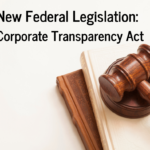A potential shift in labor regulations is on the horizon, as the Department of Labor (DOL) has proposed an increase to the minimum salary threshold for white-collar exemptions to the overtime requirement under the Fair Labor Standards Act (FLSA). This proposal, currently in its 60-day notice period, could have significant implications for employers and employees alike.

The Proposed Changes
The DOL’s proposed rule suggests a substantial increase from $684 per week ($35,568 annually) to $1,059 per week ($55,068 annually) for the minimum amount an employee must make per week to be exempt from overtime under the executive, administrative, or professional exemptions. Moreover, the rule would increase the total annual compensation requirement for “highly compensated employees” from $107,432 per year to $143,988 per year. These potential changes aim to redefine eligibility for overtime pay and are subject to alterations following the 60-day notice and comment period.
Impact on Employers
Businesses should prepare for potential adjustments in workforce and compensation strategies. If the proposed regulations become effective, employers will have to assess whether to raise employee salaries or reclassify them as non-exempt.
Key Considerations
- Possible Revisions: As this is a proposed rule, the DOL will likely revise the proposed rule after the 60-day notice period based on feedback from various stakeholders.
- Financial Evaluation: Employers should analyze the cost-effectiveness of salary adjustments versus potential overtime expenses for reclassified employees.
- Workforce Management: Businesses may need to reconsider how they manage employee workloads and schedules to minimize overtime hours and associated costs.
- Communication and Compliance: Transparent communication with employees about potential changes is vital, as is maintaining accurate records for compliance and dispute resolution.
In sum, the DOL’s proposed increase in minimum salary thresholds for white-collar exemptions presents a potential paradigm shift for employment regulations. It is crucial to note, however, that this is a proposal subject to changes after the 60-day notice and comment period. As these regulations evolve, it will be important for employers to remain informed and seek legal counsel. For more information or assistance, please contact Jordan Heck, Carrie Roelle, or any member of the KDDK Labor and Employment Practice Group.






